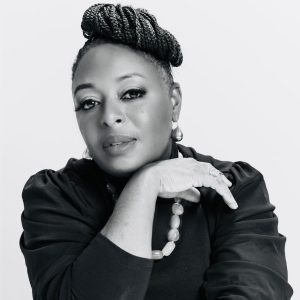Empowering Black Female Professionals: Navigating Career Advancement and Corporate Support
 In today’s corporate landscape, diversity and inclusion initiatives have gained significant momentum, yet the journey for Black female professionals remains a unique and often challenging one. Everyone is an individual coming to work from different places and backgrounds and it is true that personality traits and opportunities from a young age makes a difference. I speak as someone who lives in a town with many successful Black professionals, and I have a daughter of color myself so I would only want a fair opportunity for her by equipping her for the world and the workplace. Writing this, however, feels somehow repetitive as founder of theglasshammer.com because things only change if we make them change.
In today’s corporate landscape, diversity and inclusion initiatives have gained significant momentum, yet the journey for Black female professionals remains a unique and often challenging one. Everyone is an individual coming to work from different places and backgrounds and it is true that personality traits and opportunities from a young age makes a difference. I speak as someone who lives in a town with many successful Black professionals, and I have a daughter of color myself so I would only want a fair opportunity for her by equipping her for the world and the workplace. Writing this, however, feels somehow repetitive as founder of theglasshammer.com because things only change if we make them change.
People of color are still facing systemic barriers and yet Black female professionals continue to show up to bring invaluable perspectives, skills, and talents to the table. However, to fully harness their potential, it’s crucial to address the obstacles they encounter and recognize the pivotal role that both managers and companies play in their career advancement. It is worth checking out our extensive past coverage on Black women’s advancement and how the Black feminist movement was completely different to the names that we might associate with the topic – bell hooks is less of a household name for example.
Black women in corporate settings often encounter a multitude of challenges that can impede their career progression. These challenges include systemic racism, gender biases, and intersectional discrimination. Tsedale M. Melaku’s book You Don’t Look Like a Lawyer: Black Women and Systemic Gendered Racisim highlights how race and gender create barriers to recruitment, professional development, and advancement to partnership for Black women in elite corporate law firms.
Stereotypes and unconscious biases may lead to being overlooked for promotions or opportunities for growth. Additionally, navigating corporate culture that may not fully embrace diversity and inclusion can be isolating and exhausting with a researched psychological toll of being one of the only senior women of color.
Despite these challenges, there are several strategies Black female professionals can employ to advance in their careers:
Building a strong network is crucial. Cultivating a supportive network of mentors, sponsors, and peers can provide valuable guidance, opportunities, and advocacy. Seeking out individuals who can offer mentorship and sponsorship can help navigate challenges and open doors to new opportunities. Goldman Sachs has a Black Analyst and Associate program that enables connection and learning and has proven to retain and help develop Black and African American talent. Investing in continuous learning and skill development is essential for staying competitive in today’s rapidly evolving workplace. Pursuing professional development opportunities, acquiring new skills, and seeking feedback can enhance capabilities and increase visibility within the organization.
Developing strong communication skills, including assertiveness, can be instrumental in advocating for oneself and expressing career goals and aspirations. Assertive communication involves confidently articulating one’s achievements, skills, and ambitions, as well as setting boundaries when necessary. However there has been research that suggests that women of color fall foul of a negative stereotype of the “Angry Black Woman” so there is a difficult and unfair line to tow as that is not applied to others. #SoftBlackGirl offers solid advice regarding celebrating and communicating wins regularly.
Actively seeking visibility within the organization by volunteering for high-impact projects, participating in cross-functional teams, and contributing thought leadership can increase recognition and demonstrate leadership potential. Advocating for oneself is crucial in ensuring that achievements and contributions are recognized and rewarded. Black female professionals should feel empowered to speak up about their accomplishments, express career aspirations, and negotiate for advancement opportunities.
Corporate organizations play a pivotal role in creating an inclusive environment where Black female professionals can thrive. To support their success, companies should implement the following initiatives:
Diversity and Inclusion Programs: Establishing robust diversity and inclusion programs that prioritize representation, equity, and belonging can foster an environment where Black female professionals feel valued and supported. These programs should include initiatives such as mentorship programs and leadership development opportunities. These programs have to be useful by design and will not be unless they are supported from the top with an integral place in the talent strategy. These programs need to be structural not superficial. Unconscious bias training has become in mode – and the research is mixed on it- some say that awareness of bias reduces bias but studies show perspective taking is more effective and lasting.
Accessibility and Transparency: Companies should ensure that advancement opportunities are accessible to all employees based on merit and potential, regardless of race or gender. Implementing transparent promotion processes and addressing biases in decision-making can help mitigate disparities in career advancement.
Mentorship and Sponsorship Programs: Creating formal mentorship and sponsorship programs that pair Black female professionals with senior leaders who can provide guidance, advocacy, and career support is essential. These programs should focus on fostering meaningful relationships and providing opportunities for skill development and visibility.
Leadership Accountability: Holding leaders and managers accountable for promoting diversity and inclusion within their teams and advocating for the advancement of Black female professionals is crucial. Leadership accountability can be demonstrated through setting diversity goals, measuring progress, and fostering a culture of inclusivity. You would think it would go without saying that companies must actively address bias and discrimination in the workplace by implementing policies and practices that promote fairness and equity. This includes addressing microaggressions, providing diversity training, and creating channels for reporting and addressing discriminatory behavior.
The journey for Black female professionals to advance in their careers is multifaceted and requires both individual resilience and organizational support. By employing strategic career advancement strategies and advocating for systemic change within companies, Black female professionals can overcome barriers and achieve success. It is imperative for corporate organizations to prioritize diversity, equity, and inclusion initiatives to create a more inclusive and equitable workplace where all employees, including Black women, can thrive and reach their full potential.
Diversity work requires organizational development, leadership, and commitment from everyone. Gatherings in employee resource groups, big ticket speakers and requested assimilation to the model of work, which was built postwar for white men, just isn’t the answer.
Evolved Employer, the organizational development consulting arm of theglasshammer works with companies to ensure companies understand systemically the work that creates a more level playing ground for all to thrive- true talent meritocracy.
By Nicki Gilmour, founder and CEO of TheGlasshammer.com









